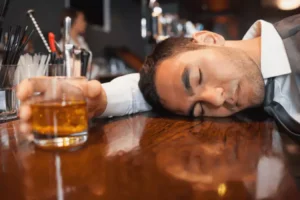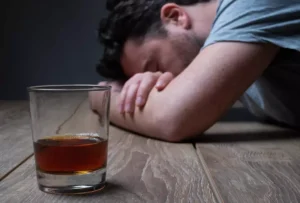
If you or a loved one are suffering from Insomnia that you believe is tied to an alcohol use disorder, then your problem is likely more severe than you realize. There is a growing body of literature demonstrating a bidirectional alcohol insomnia relationship of insomnia with alcohol consumption and alcohol misuse. The most common drinking typologies over the three decades of observation were stable moderate drinkers (21.2%) and unstable moderate (29.2%).
Physical Activity and Sleep

Once in the bloodstream, alcohol reaches your brain within minutes, where it interacts with various neurotransmitters — chemical messengers that send signals to neurons throughout your body and control your behaviors, thoughts, and feelings. This article discusses the science behind why alcohol makes you sleepy, how to minimize drowsiness while drinking, and the broader effects alcohol has on your sleep and overall health. Research from 2024 shows this change to sleep architecture persists across consecutive nights of pre-sleep alcohol. Here’s more on those key tips to avoiding https://ecosoberhouse.com/ for the casual drinker or those without alcohol abuse problems.
- There’s a chance you’ll physically act out your dreams in your sleep, or even sleepwalk.
- The rightpanel (KC-) show the result of averaging responses not including K-complexes.
- However, a subset of patients may have fragmented sleep and disturbances of consciousness that predict a guarded prognosis for future episodes of DTs (Kotorii et al., 1982, Nakazawa et al., 1981).
- While alcohol may initially make you feel drowsy, it can interfere with your sleep cycle, cause frequent night awakenings, and lead to poor sleep quality.
Triggers Sleep Talking and Sleepwalking
Of these 6,318 men and women, 6117 (96.8%) had data on alcohol and sleep. Men consumed more alcohol than women with 15.7% consuming 21 or more units per week compared to only 2.4% of women (Table 1). 30.5% men and 12.8% women scored more than 5 on the AUDIT score, indicating hazardous drinking. If you’re struggling with alcohol use disorder (AUD), you may develop insomnia during withdrawal or recovery. In the first half of the night, when the body is metabolizing alcohol, studies show people spend more time in deep, slow-wave sleep and less time in REM sleep.
Improve Your Sleep Hygiene

Table 2 highlights some of the most commonly covered sleep hygiene principles. Your sleep circadian rhythm is the process of your body responding to light and darkness within a 24-hour period. Your body’s clock sets the typical schedule of being awake during the day and sleeping at night.6 This is why you typically feel alert and awake near the same time of day and less focused and tired around the same time of night.
- It’s true, sleep may happen more quickly after consuming a drink or two.
- Effects of an acute pre-bedtime dose of alcohol on sleep have been extensivelystudied although methodology has varied greatly between studies in terms of dose and timingof alcohol administration, age and gender of subjects, and sample size.
- Alcohol can have a sedative or stimulant effect depending on the dose and the time between drinking and bedtime.
- That’s because as alcohol starts to metabolize, the sedative effect wears off.
- Insomnia disorders are more likely to have a chronic course, to require independent treatment, and may contribute more directly to relapse during alcohol recovery.
Studies also failed to differentiate insomnia symptoms from an insomnia disorder, which is characterized by the additional burden of daytime impairment and/or psychological distress attributable to the sleep problems. Insomnia disorders are more likely to have a chronic course, to require independent treatment, and may contribute more directly to relapse during alcohol recovery. Large-scale epidemiological studies with validated measures and good operational definitions of insomnia are clearly warranted to establish the incidence and prevalence of insomnia in the alcoholic population and its clinical course in relation to the alcohol disorder.

Heavy alcohol use can contribute to the development of insomnia, a sleep disorder characterized by difficulty falling asleep and staying asleep. As many as three quarters of people with alcohol dependence experience insomnia symptoms when they drink. Trusted Source UpToDateMore than 2 million healthcare providers around the world choose UpToDate to help make appropriate care decisions and drive better health outcomes. UpToDate delivers evidence-based clinical decision support that is clear, actionable, and rich with real-world insights.View Source Insomnia is also very common in people who are in withdrawal or early recovery from alcohol addiction. It was also not always clearly stated that subjects were abstinent from cross-tolerant sedatives in addition to alcohol.
Beverages To Avoid to Sleep Soundly While Traveling

